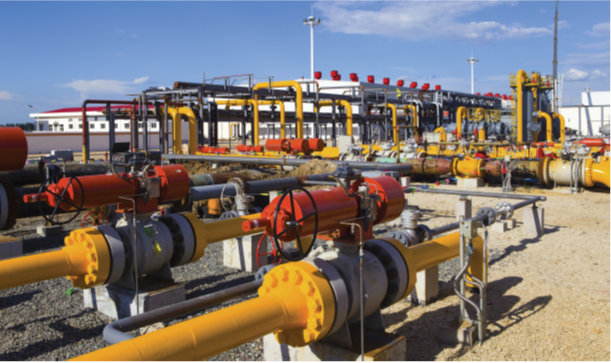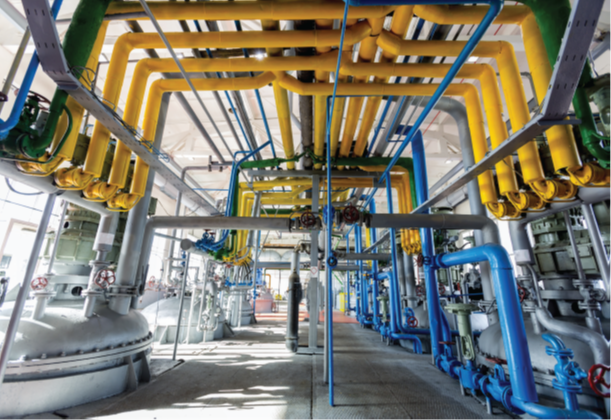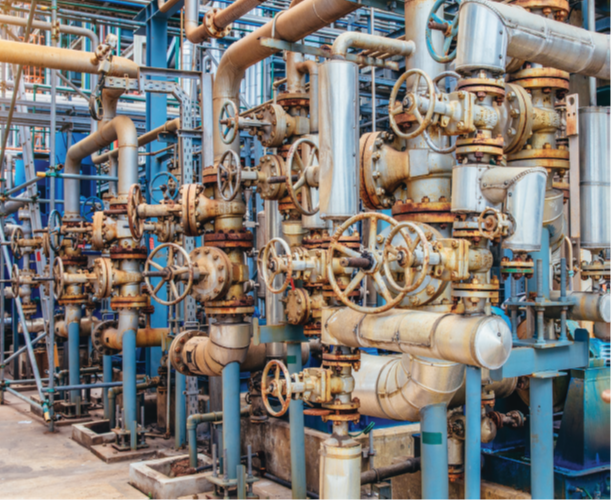The International Oil & Gas Producers Association (IOGP) plays an important role in the oil & gas industry and its governing standards. IOGP Standards Committee and Subcommittees liaise with industry standards organizations such as API, ASME, ISO, and NORSOK to support the development of relevant industry standards, to help the member companies and the industry achieve the following: build and operate safe, reliable, and cost-efficient assets, in a socially responsible manner and respond to the Climate Change challenge (CO2, Fugitive Emissions, Hydrogen, etc.).
Valve World Americas had the pleasure of speaking with Ayman Cheta, Engineering Team Lead at Shell, about his role as Chair of IOGP Piping & Valve Standards Subcommittee, the importance of maintaining these standards, as well as the value of connecting with others in the industry.
By Charlie Evans
As an Engineering Team Lead, Ayman Cheta works on a variety of projects for Shell. “I am committed to several ongoing responsibilities involving technical assurance and leading engineering activities for various projects,” said Cheta. One of his key responsibilities is overseeing his team and providing directions for design requirements. “What is acceptable and what is not? What will work best in the capacity of this project?”
Cheta started his career in the oil and gas industry more than 36 years ago. He worked for Total, Amoco and bp, before joining Shell 18 years ago. His career spans roles in maintenance, reliability, inspection, and integrity, as well as technical support for operating assets and major multi-billion-dollar projects.

Alongside his role as a Team Lead, Cheta is involved in a variety of industry committees dedicated to preserving the integrity of valves and the processes they operate in. “I am the current Chair of the IOGP Piping and Valves Standards Subcommittee. I previously served as Chair of the ASME B16 Subcommittee C from 2014-2020, and Vice Chair of API CRE Subcommittee on Piping & Valves from 2006-2009. Also, I am currently chairing a test group to update API Standard 608 for Ball Valves,” Cheta explained.
These roles, while outside of the scope of his day-to-day activities, are essential to the continued safe use of valves, in oil & gas production sites, refineries, and chemical facilities. “The IOGP Standards subcommittee work takes up quite a bit of my time. We have almost daily meetings, trying to update the different standards and specifications, but most would agree that it is incredibly important work.”

Working With the IOGP
The IOGP is a group of integrated energy companies, national oil companies, independent upstream operators, service companies, and industry associations. IOGP members collaborate in several different ways. It affords the member companies the opportunity to cooperate and collaborate with one another in a way that will benefit the industry in a socially responsible manner. “One of the Joint Industry Projects (JIPs) managed by IOGP is JIP33 – Standardizing Procurement Specifications, which aims at making engineering design and procurement of equipment more efficient by having a common set of procurement specification,” said Cheta.
In 2021, Cheta was handpicked to join the IOGP Piping & Valve Standards subcommittee, due to his extensive experience dealing with piping and valve standards. “I started working in the industrial valve fi eld in the late 1990s, and by the 2006, I was Vice Chair of the API CRE Subcommittee of Piping and Valves. Six months after joining IOGP Piping & Valve Standards subcommittee, I was elected as Chair,” he continued.
Due to this wealth of experience and expertise, Cheta was deemed the appropriate person from Shell to Chair the IOGP subcommittee. “Thanks to my years of hands-on experience I am able to recognize potential conflicts and propose ideas to narrow the gaps and resolve them, thereby overseeing the proceedings as we go.”
Immediately after accepting the position of Chair, Cheta drafted a new strategy; he developed a vision and a mission statement for the subcommittee to align with industry needs and Climate Change challenges in a socially responsible manner.
“In my role as a Chair, I draft ideas for what we should be doing for the next five years – essentially a five-year business plan. I must think: what are we trying to accomplish short term and long term?” It begins with drafting initial thoughts and ideas, and soliciting ideas from other members, before bringing it to the subcommittee members during a meeting. From there, ideas are discussed and agreed upon before finalizing the plan and then seeking approval from the IOGP.
The IOGP Piping & Valve Standards Subcommittee serves the industry in several ways:
- Serving as a global network of the piping and valves specialists of IOGP members and other potentially invited parties. Share technical experience, align end user technical perspective, and agree input to the piping and valve standards work.
- Supporting IOGP JIP33 within the piping and valve area including maintenance oversight of supplementary specifications (e.g., S-562 Ball Valves and S-611 Gate Valves) and development of new specifications. Additionally, liaising with other IOGP groups and assisting the IOGP Standards Committee with the execution of its terms of reference within the field of piping & valves.
- Supporting and liaising with relevant international standards organizations, e.g., API, ASME, ISO, etc. on piping and valve-related standards.
- Identifying common ground for the development of international standards. Make specific recommendations for new standards to serve the evolving needs of the industry.
- Participating in active work groups for relevant piping and valves standards.
Of course, there are challenges with the IOGP. “As there is such a broad range of applications, you sometimes see requirements that are not all universally agreed between the member companies,” Cheta explained. “This is one of my favorite parts of the role; I enjoy the conflict resolution side of things. Finding an acceptable resolution that everyone can agree to is very rewarding, especially as the overall purpose is to ensure the safety of operators and the public.”

The Benefits of an IOGP Panel
While most of the work done for IOGP standards is done within the confines of the committee, Cheta stresses the importance of having members connect and interact with other industry members at conferences. “The individuals most likely to attend a panel session on IOGP specifications are manufacturers, end users, or suppliers – someone who has vested interest,” explained Cheta. “It is important to discuss this topic with larger groups and receive their feedback and insight. There are often misunderstandings regarding the IGOP’s intentions and public panel sessions. For example, the IOGP panel at the Valve World Americas Expo & Conference, allow us to address those concerns. We want to clarify any misunderstandings people may have the best we can,” stated Cheta.
The Industry Going Forward
When asked about the future of the industry, Cheta said, “A lot of companies are using their research and development teams to work towards their own goals regarding fugitive emissions, Low Carbon fuels, Bio-fuels, Carbon Capture, and Hydrogen. That is an ongoing journey that I do not believe will stop any time soon.”
“A lot of companies are also doing research and development for new technologies, however when they collaborate, they use the IOGP to do so,” he continued. “Many companies are working together on the new hydrogen economy for example, and having universal standards to refer to for collaboration purposes can only benefit their progress. With all emerging technologies and new requirements for the energy sector, I think the continued development and refinement of IOGP standards will be more important than ever,” he concluded.

